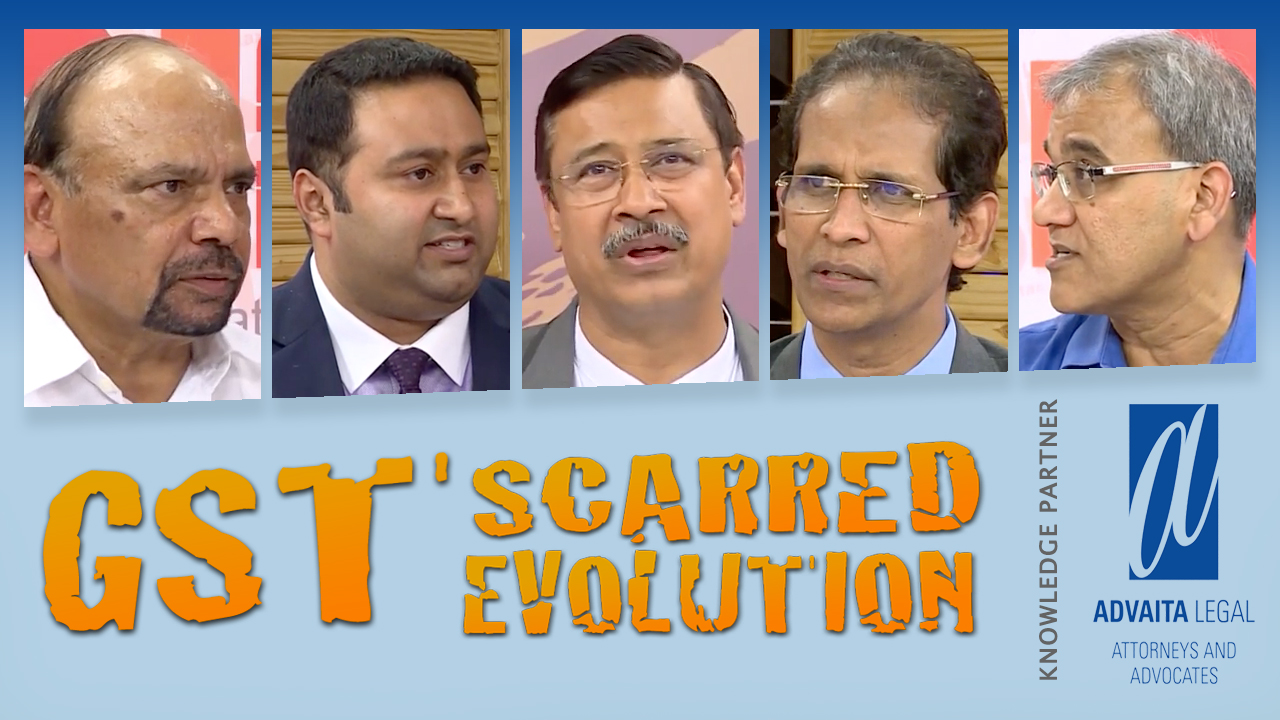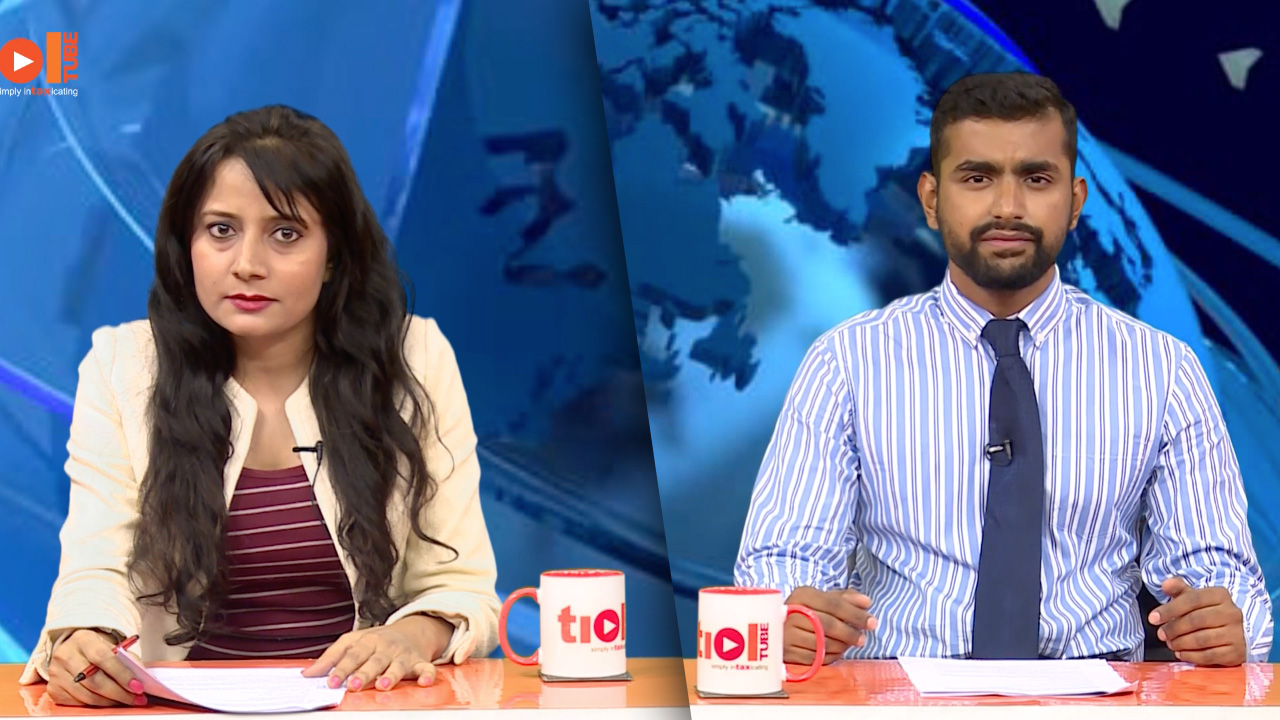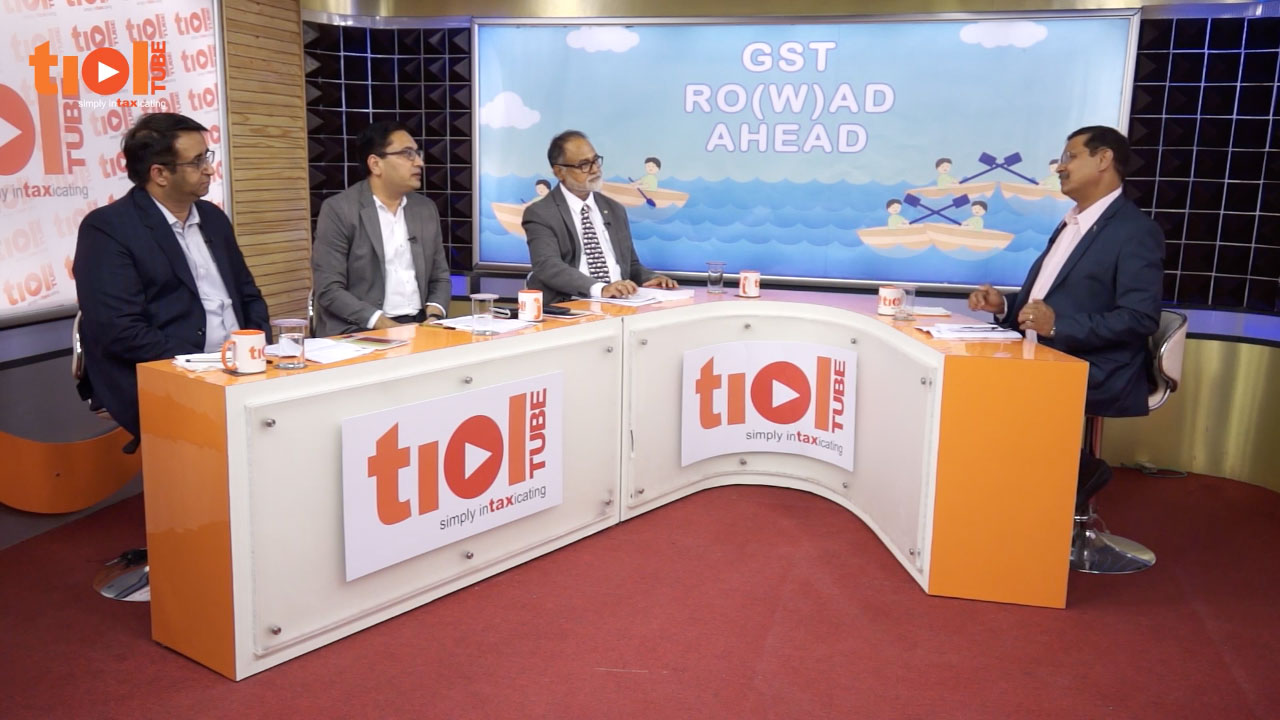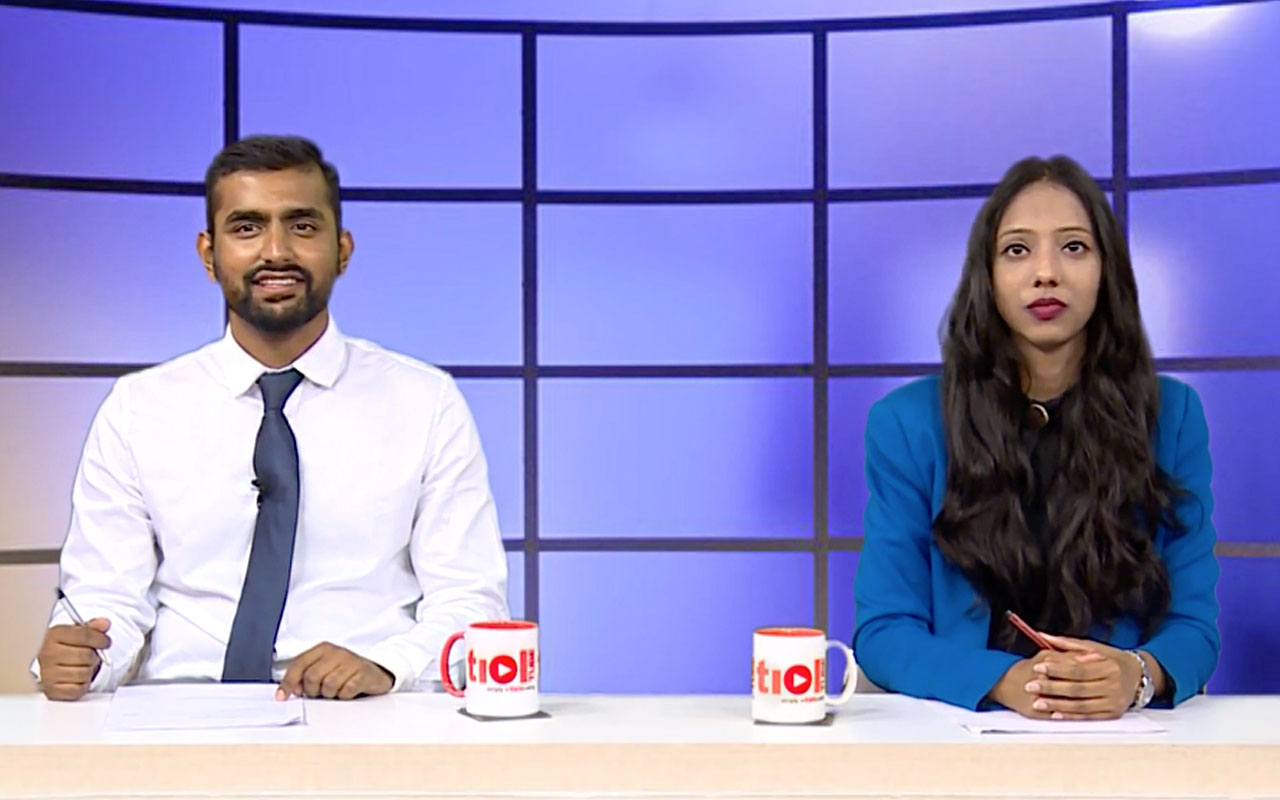SERVICE TAX
2018-TIOL-3226-CESTAT-MUM + Case Story
Pushpak Steel Industries Pvt Ltd Vs CCE & ST
ST - Arrangement of transportation was only to facilitate delivery of the duty paid excisable goods at the buyer's premises- Since transportation cost incurred was in context with delivery of goods at buyers premises, it cannot be said that such facility extended by the appellant should be considered as a taxable service under 'Business Support Service' - Impugned order set aside and appeal allowed: CESTAT [para 6]
- Appeal allowed: MUMBAI CESTAT 2018-TIOL-3218-CESTAT-MAD
Saravana Enterprises Vs CST
ST - The assessee is complete education franchisee for another company - Departmental audit revealed that assessee did not remit full amount of service tax collected from students - An SCN was issued raising duty demands with interest - While such demands were confimed on adjudication, on appeal, the Commr.(A) remanded the matter - On de novo adjudication, the demands were re-iterated - On second round of appeal, the Commr.(A) upheld such findings.
Held: An identical issue was resolved in Kunal IT Services Pvt. Ltd. Vs. CCE, Pune - Besides, the findings in this case were followed by the Tribunal in Y.K. Information Systems Pvt. Ltd. Vs. CCE, New Delhi - There is no reason to deviate from such findings & so the demands are set aside: CESTAT (Para 1,5.1,5.2)
- Appeal allowed: CHENNAI CESTAT
2018-TIOL-3217-CESTAT-HYD
Sagar Cements Ltd Vs CCT
ST - The assessee is registered with service tax as input service distributors for the purpose of input transferring input service tax credit to their two manufacturing units located at Mattampally and Pedavedu villages, which manufacture cement chargeable to Central Excise duty - It was found that assessee have availed CENVAT credit on certain legal services which they received - It was felt by lower authority that credit of service tax on such legal services is not covered by Rule 2(l) of CCR, 2004 and therefore, a SCN was issued seeking to deny the credit and recover the same under Rule 14 of CCR, 2004 along with interest - It is not in dispute that assessee had availed CENVAT credit on legal services - Assessee also does not dispute that there is no nexus of these services with the manufacture of the final products - Tribunal doesnot agree with the assessee that none of these services need to have any relationship whatsoever to the manufacture of final products - The definition specifically requires the services to be in or in relationship to the manufacture of final products and the inclusive part of the definition enlarges the scope of such services so that any ambiguity removed - The legal services availed by assessee are not covered by the definition in Rule 2(l) of CCR, 2004 and therefore, the assessee has wrongly availed the CENVAT credit - It is evident from the records, this availment of CENVAT credit came to light only during scrutiny of the service tax returns and further enquiry for the nature of services rendered by them - This fact would not have come to light but for the investigation by officers - Therefore, the extended period of eligibility is invokable in this case and so are the penalties liable to be imposed - Therefore, there is no reason to interfere with the impugned order: CESTAT
- Appeal rejected: HYDERABAD CESTAT
2018-TIOL-3216-CESTAT-MUM
M Venkata Rao Infra Projects Pvt Ltd Vs CCE
ST - Appellant filed a declaration dated 30.12.2013 for payment of Service Tax amounting to Rs.1,06,41,441/- under the VCES, 2013 and also submitted three challans dated 26.12.2013 and one challan dated 29.12.2013 towards payment of service tax of Rs.65,61,360/- - On scrutiny of the challan it was noticed that the appellant had paid the amount in respect of their unit based in Vishakhapatnam - as appellants failed to remove the discrepancy and deposit the amount under the account of Goa unit which had made the application under VCES, 2013, the natural corollary was that they failed to make deposit of 50% of service tax amount declared by due date and hence the declaration under VCES was liable to be rejected - so also, it was gathered that DGCEI had conducted enquiries against the said Goa unit as on 01.03.2013 and hence the unit was not qualified to make the declaration under the said VCES scheme - SCN was issued proposing rejection of the VCES declaration and the same was confirmed by the adjudicating authority - as the order was upheld by Commissioner(A), appeal filed before CESTAT - Appeal also filed against the order confirming the charges leveled in the SCN issued after investigation by DGCEI viz. service tax demand of Rs.1,08,66,653/- (amound paid appropriated by adjudicating authority) and penalties and interest.
Held: It is a fact that while filing the VCES declaration the appellants have failed to fulfill the requirements prescribed for the said scheme - submission made that the payment made by them against the STC no. of Vishakhatpatnam unit should be considered as payment made for their Goa unit is devoid of merits - there may be errors committed in day to day functioning but not in case when a person is specifically opting for the beneficial scheme - it is also a settled principle that every prescribed condition cannot be brushed aside as procedural and act of the person justified as bonafide just to promote the cause of the appellants - it is also a settled law that one should not be allowed to take benefit of his own wrongs - by filing the declaration on the last date for making paymentof 50% of the payments under the VCES, the appellants had virtually denied the department the opportunity to cross verify - even if it is accepted that the error was made while filing the challans in the first instance, the appellant should have established their bonafide by filing the challans for remaining amount in correct manner which they failed to do - no merits in the appeal insofar as rejection of the VCES declaration is concerned - however, in the matter of the second appeal, it is seen that the adjudicating authority has appropriated the amounts paid under the STC no. of the Vishakhapatnam unit for payment of service tax liability confirmed against the unit in Goa - appellant were registered assessee and were paying service tax but subsequently they stopped paying the same and did not file ST-3 returns - Appellant had knowingly and willingly suppressed the value of taxable service and the tax due with intention to evade payment of tax and only when investigations were started by DGCEI that they came forward and made certain deposits towards the tax payment - Commissioner was correct in holding the appellants liable for penalty u/s 78 of the FA, 1994 as all the ingredients required to invoke the said section are satisified - since appellant had not filed any returns, penalty u/s 77 is also imposable - no merits in the appeal filed, hence dismissed: CESTAT [para 5.1 to 5.3, 5.5, 5.7, 6]
- Appeals dismissed: MUMBAI CESTAT
CENTRAL EXCISE
2018-TIOL-3215-CESTAT-MUM
Amitasha Enterprises Pvt Ltd Vs CCE & ST
CX - Appellant had availed CENVAT credit of service tax paid on security services which were utilized within the head office located away from the office and also at the residential premises of the Managing Director and Directors - Revenue alleged that such services cannot be called as Input Services as the same do not fall within the mabit of rule 2(l) of CCR, 2004 - demand confirmed by lower authorities along with interest and penalty, hence appeal before CESTAT.
Held: On plain reading of rule 3 of the CCR, 2004, it transpires that receipt of Input service should not be confined to the factory alone and the same can be extended to the other premises belonging to the manufacturer - since the activities undertaken in the head office of the appellant is in the context with the manufacturing activities performed in the factory and the services availed therein are in relation to the manufacturing activity, the CENVAT benefit in respect of the taxable service used/utilized in the head office viz. of Security service should be considered as proper availment of credit under both the un-amended and amended definition of Input service u/r 2(l) of CCR, 2004 - however, the security service utilized by the appellant and related to the residential premises of the employees should not be considered as Input service inasmuch as such service cannot be considered as used in or in relation to the manufacture of the final product - as such service has no nexus with the manufacturing activity, it should not be eligible for CENVAT credit - since the appellant had sufficient balance in their CENVAT account, it cannot be said that there is loss of revenue to the Government exchequer and for that purpose Revenue has to be compensated by way of charging interest - interest demand cannot be sustained - further since there is no suppression, fraud etc. on the part of the appellant in defrauding the Government revenue by availing ineligible CENVAT credit, penalty imposition is also not proper - appeal partly allowed: CESTAT [para 6 to 8]
- Appeal partly allowed: MUMBAI CESTAT
2018-TIOL-3214-CESTAT-MUM
Essel Propack Ltd Vs Commissioner of GST & CX
CX - CENVAT - Appellant had obtained registration as Input Service Distributor but had not followed the distribution pattern as required under the rule for transfer of goods and services from HO to factory unit - Fraud had been practised in coverting a transportation bill to labour charge bill - in both bills raised by M/s G Raju, Engineering Works Contractor on 06.09.2010 and 06.03.2011, original description in the particular column is machinery shifting from Washind to Goa but in the first copy of bill, labour charges are inserted in a different handwriting at the end of the description and in the second bill it is also inserted in another handwriting at the beginning of the description column - it appears that labour charges have been purposefully inserted in the bills to cover the services availed under the CCR, 2004 - going by the unethical practice adopted by appellant, it can be said that the same amounts to fraud within the definition of IPC - apex court has held in AIR 1994 SC 853 S.P.Chengalvaraya Naidu vs. Jagannath that a person whose case is based on false suit has no right to approach the court and he can be summarily thrown out at any stage of litigation - since the documentary evidence produced before the Bench have no connection with the actual transactions made by appellant but those appear to have been created for the purpose of meeting the law, appeal is dismissed and the impugned order in appeal is confirmed: CESTAT [para 5, 6, 7, 10]
- Appeal dismissed: MUMBAI CESTAT
2018-TIOL-3213-CESTAT-MUM
Fulham India Pvt Ltd Vs CCT
CX - CENVAT credit on Courier services utilized for delivery of goods at the buyer's premises has been denied on the ground that ‘place of removal' is the factory gate and services availed up to such point only can be considered as Input service - appeal to CESTAT.
Held : Issue with regard to availment of CENVAT credit on GTA/Courier service for delivery of goods at the buyers premises is no more res integra in view of the apex court decision in Ultratech Cement Ltd. - 2018-TIOL-42-SC-CX , therefore, credit has been rightly denied - however, since the appellant had sufficient balance in his CENVAT account during the disputed period, it cannot be said that the disputed credit had been utilized for payment of CE duty on the clearances made - under the amended provisions of rule 14 of CCR, 2004 since credit has not been utilized, no interest shall be demanded from appellant - since the credit was availed based on the earlier Circular issued by the CBEC, it cannot be said that the appellant indulged in fraudulent activity, therefore, provisions of rule 15(2) of CCR also cannot be invoked for imposition of penalty - impugned order insofar as it denies the CENVAT credit on Courier service is sustained but interest and penalty imposed is set aside - Appeal is partly allowed: CESTAT [para 6 to 8]
- Appeal partly allowed: MUMBAI CESTAT
CUSTOMS
2018-TIOL-3212-CESTAT-AHM Siemens Gamesha Renewable Power Pvt Ltd Vs CC
Cus - Assessee have imported prime hot rolled steel plates shotblasted/ coated with Zinc Silicate - At the time of import in terms of DGFT Notfn 38/2015-2020, the minimum import price was fixed on iron steel under chapter 72 of ITCHS, 2012 - The assessee declared the price of imported goods which is below the minimum import price fixed by DGFT for import of such goods - Therefore, Revenue, on the ground that assessee have violated the condition of FTP, confiscated the goods, imposed redemption fine and enhanced the value from the declared price to equal to minimum import price fixed by DGFT - As regards to DGFT's power to issue notification under Section 3 of FT(DR) Act, 1992 for fixing the minimum import price, the DGFT is empowered to impose restriction for import - The fixing of MIP is not to enhance the value of goods but only to impose of restriction - Any type of restriction can be imposed by DGFT by issuing Notification, therefore, DGFT is well within the power under Section 3 of FT (D&R) Act, 1992 to impose any condition for import - As regards to enhancement of valuation by Customs Authority merely on the basis of minimum import price fixed by DGFT, the Customs valuation is governed by Section 14 according to which the transaction value if otherwise not disputed should be accepted for the purpose of assessment - Merely on the basis of MIP fixed by DGFT, the Customs valuation cannot be disturbed - The identical issue has been decided by Tribunal in case of Crystal Granite and Marble - In view of said judgment, the customs valuation cannot be altered or enhanced on the basis of minimum import price fixed by DGFT - Accordingly, enhancement of value ordered by the lower authority is set aside - As regards to redemption fine and penalty imposed by lower authorities, there is indeed violation of Foreign Trade Policy that despite the minimum import price fixed by DGFT, assessee have imported the goods which is carrying the value below minimum import price, therefore, they have violated the condition, however, this violation does not result into any Revenue loss to the Government or any undue gain to the assessee - Therefore, looking to the gravity of offence and considering the setting aside the enhancement of value, lower authority have imposed the redemption fine and penalty disproportionately - Accordingly, the redemption fine and penalty reduced: CESTAT
- Appeals partly allowed: AHMEDABAD CESTAT
2018-TIOL-3211-CESTAT-BANG
Wipro GE Healthcare Pvt Ltd Vs CC & ST
Cus - The assessees imported "Anesthesia Ventilatory System" & claimed benefit of concessional rate of duty as well as CVD under Notification No. 21/2002 Cus. and Notification No. 6/2006 CE - Such benefit - The Department classified the goods as "Anesthesia Apparatus and instruments" and denied such benefits.
Held: Considering the Tribunal's findings in CC, Delhi Vs. Datex Ohmeda (India) Ltd. the issue is no longer res integra & the assessee is entitled to such exemption: CESTAT (Para 2,6,7)
- Appeals allowed: BANGALORE CESTAT |




 by Shailendera Kumar
by Shailendera Kumar 



